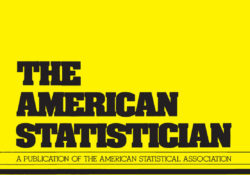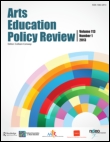tandfonline.com har udgivet en rapport under søgningen “Teacher Education Mathematics”: AIC-type Theory-Based Model Selection for Structural Equation Models Link til kilde
Like this:
Like Loading...
tandfonline.com har udgivet en rapport under søgningen “Teacher Education Mathematics”: ABSTRACT ABSTRACT Across the world, teacher quality has come to be recognised as one of the most important variables affecting student outcomes; consequently, the regulation of entry into the profession is the subject of iterative review. The traditional ‘one-off’ interview, involving an interviewee and two or more interviewers, is a common, but not unproblematic, selection mechanism in the field. In particular, the modest positive correlation between performance at interviews and in clinical settings raises questions about using interviews as a selection mechanism for Initial Teacher Education (ITE) programmes. In this paper, we draw on validity theory and some key commentaries and studies in the research literature to offer a perspective on the extent to which the traditional interview provides data… Continue Reading →
Like this:
Like Loading...
tandfonline.com har udgivet en rapport under søgningen “Teacher Education Mathematics”: Link til kilde
Like this:
Like Loading...
tandfonline.com har udgivet en rapport under søgningen “Teacher Education Mathematics”: ABSTRACT ABSTRACT In this paper the authors examine the role the Dutch gymnasium continues to play in the institutional maintenance of educational inequality. To that end they examine the relational and spatial features of state-sponsored elite education in the Dutch system: the unique identity the gymnasium seeks to cultivate; its value to its consumers; its geographic significance; and its market position amidst a growing array of other selective forms of schooling. They argue that there is a strong correlation between a higher social class background and the concern to transmit one’s cultural habitus. They further speculate on the moral implications of state-sponsored elite education, both as it concerns the specific role of the gymnasium in the reproduction of social inequality… Continue Reading →
Like this:
Like Loading...
tandfonline.com har udgivet en rapport under søgningen “Teacher Education Mathematics”: ABSTRACT Formulae display:?Mathematical formulae have been encoded as MathML and are displayed in this HTML version using MathJax in order to improve their display. Uncheck the box to turn MathJax off. This feature requires Javascript. Click on a formula to zoom. ABSTRACT The research brought forward examines the evolution of the selective social processes that have accompanied educational expansion over the long term, referring to the case of France. It is based on an original index which addresses the issue of assessing inequality within the selection process for access to various educational levels. The results obtained support an understanding of contradictory prior findings attached to the thesis of uniform democratization and the thesis of “qualitative” or “intrinsic” democratization, respectively. They… Continue Reading →
Like this:
Like Loading...
tandfonline.com har udgivet en rapport under søgningen “Teacher Education Mathematics”: Abstract Abstract Children from some demographic groups disproportionately receive special education (SE) services. Due to methodological shortcoming in existing work, it remains unclear whether this is due to real differences in academic needs or cultural selection/bias. Hence, in a community sample of 1250 Norwegian children, we examined the role of third grade SE services, academic test scores, behavioural problems, and teacher’s level of helplessness in mediating the effect of family socio-economic status (SES) and students’ gender on fifth-grade SE services. Results revealed no direct effects of either gender or SES on fifth-grade SE, but four mediated pathways were identified: (1) Boys had a greater likelihood of receiving fifth-grade SE services when (a) they previously received SE and (b) they experienced… Continue Reading →
Like this:
Like Loading...
tandfonline.com har udgivet en rapport under søgningen “Teacher Education Mathematics”: Abstract Abstract This paper explores the declining trend of fine arts education in secondary schools. We examine mechanisms that may explain this phenomenon on structural levels of policymaking and policy implementation in different areas of the education system. What will be defined as the “selection device” refers to the structurally determined selection of educational content at various policy levels of society. We argue that the choices politicians, principals, students, and parents make are regulated by “nudging” as an underlying principle of the selective device. By presenting students with “rational choice” alternatives, they are gently pressuring them away from selecting arts courses. This redirection is discursively conveyed by schools, but systematically governed by national and international guidelines in which the fine… Continue Reading →
Like this:
Like Loading...
tandfonline.com har udgivet en rapport under søgningen “Teacher Education Mathematics”: Abstract Learners’ perspectives on classroom teaching have been explored in various ways. Within the context of past research, the student voice approach has shown the potential of making teaching and learning more effective. This article reports on students’ perceptions with the aim of revealing their predispositions in the sense of Bruner’s perceptual set theory concerning mathematics lessons. By asking students about significant events in specific mathematics lessons they attended and their associated justifications, insights into students’ predispositions (beliefs) about teaching and learning mathematics are gained. We were able to reconstruct a wide range of predispositions, which indicate both a view on mathematics education that is quite positive and as well a willingness to learn comprehensively. As a further result, we… Continue Reading →
Like this:
Like Loading...







